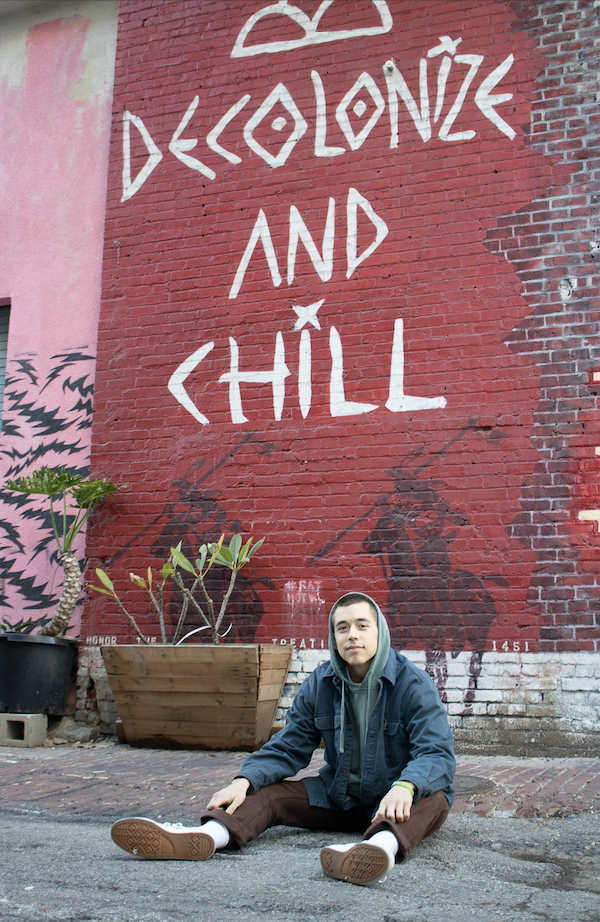By Matthew Philips
March 28, 2019
Mato Standing Soldier remembers the first time he asked someone to make music with him. He was 16, living in his hometown of Sioux Falls, South Dakota. He called one of his good friends and popped the question, and less than an hour later, the two had pieced together some hip-hop demos using a microphone from the Rock Band video game.
Since then, Standing Soldier, who creates music under the moniker Mato Wayuhi, has come a long way in building his repertoire. He’s recorded and released two full-length projects — “Pretty Pink Tapes” in 2017 and “Part-Time Indian” in 2018 — and held a slew of live performances. He’s made appearances at L.A.’s inaugural Indigenous Peoples Day Celebration and the conference for the National Congress of American Indians.
Wayuhi, now a junior majoring in cinema and media studies, arrived at USC in August 2016. But he said his infatuation with Los Angeles started long before then.
“I’ve always been really attached to different aspects of L.A., whether it be like the skateboarding scene or the music scene,” Wayuhi said. “So, in college, I had to come around — I kind of made it my prerogative to get out to the West Coast.”
After spending the first 18 years of his life in South Dakota, Wayuhi said the biggest difference between L.A. and his home state is the city’s vast amount of cultural diversity.
“That’s why I always tell people I’m studying abroad in Los Angeles,” Wayuhi said. “The cultural discrepancies are huge, and it’s really fun being able to learn about different things and teach people as well … There are different narratives to tell from that gained experience from different experiences and ancestors.”
Wayuhi, a member of the Lakota tribe, said he sees himself as an “agent of storytelling” for his ancestors, who did not have the opportunity to share their stories or experiences with the world. But telling such stories is no solo effort. Wayuhi said that social media is indispensable for native creatives who want to platform their work or collaborate with others.
“I feel like [natives] have really reclaimed our narratives on social medias,” Wayuhi said. “There’s so much incredible and meaningful art that you can just find on social media from native artists.”
Wayuhi also spends a lot of his time in Downtown Los Angeles. As a member of USC Share A Meal, he spends every Monday night rolling burritos and preparing hot meals for the homeless on Skid Row through L.A.-based nonprofit Khalsa Peace Corps. Most nights, Wayuhi is in charge of making the rice, beans and other components, which other volunteers then roll into the burritos.
This semester, Wayuhi’s priorities have mostly lined with completing his new project “Scatterbrain,” an album that features instrumentation from his live performance band Treehorse.
“I’m taking you through an anxiety attack in the most literal sense,” Wayuhi said. “Growing up, I had a lot of insecurities in the classroom in terms of my intelligence level and how I was able to pay attention and how I would have to stifle my creativity. So, it’s going through a lot of those different emotions and experiences.”
For his previous works, Wayuhi recorded and produced most of the material by himself in South Dakota. With “Scatterbrain,” the rapper saw an opportunity to incorporate the rest of the band into his production. Thus, Wayuhi abandoned his prior spring break plans of hiking in Northern California to focus on finishing the album.
“I’ve had time to be in L.A. and work with a lot of [the band] — like learn[ing] about one another from a creative standpoint — so it’s been fun to get them on and put their sauce on everything,” Wayuhi said with a laugh. “It’s all about the sauce.”
Wayuhi’s “Scatterbrain” is set for an early summer release. He is also expected to announce tour dates and locations throughout the West Coast.

